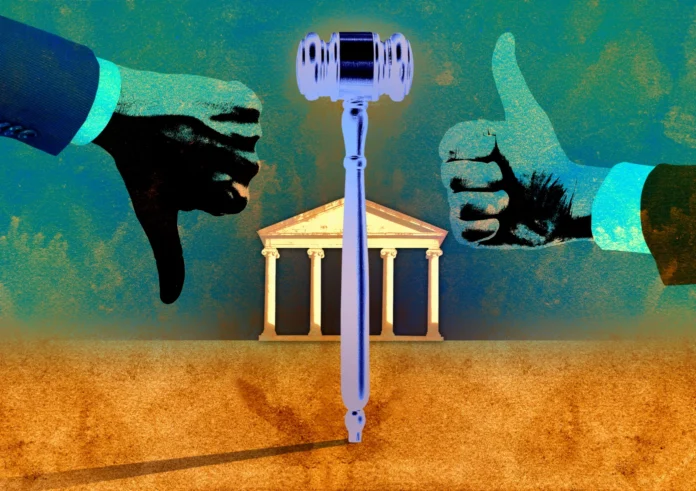Usuarios del Club TRPlane
El nuevo juguete más popular del mundo de la tecnología puede encontrarse en problemas legales ya que la tendencia de AI de inventar artículos de noticias y eventos choca con las leyes de difamación. ¿Puede un modelo de IA como ChatGPT cometer difamación? Como muchas cosas relacionadas con la tecnología, es desconocida y sin precedentes, pero los próximos desafíos legales pueden cambiar eso.
La difamación se define ampliamente como publicar o decir declaraciones dañinas y falsas sobre alguien. Es un territorio legal complejo y matizado que también difiere ampliamente entre jurisdicciones: un caso de difamación en los EE. UU. es muy diferente de uno en el Reino Unido o en España.
La IA generativa ya ha producido numerosas preguntas legales sin respuesta, por ejemplo, si el uso de material protegido por derechos de autor equivale a un uso justo o una infracción. Pero hasta hace un año, ni las imágenes ni los modelos de IA que generaban texto eran lo suficientemente buenos para producir algo que se confundiría con la realidad, por lo que las preguntas sobre representaciones falsas eran puramente académicas.
No es así ahora: el gran modelo de lenguaje detrás de ChatGPT y Bing Chat es un artista que opera a una escala enorme, y su integración con los principales productos como los motores de búsqueda (y cada vez más con casi todo lo demás) podría decirse que eleva el sistema de un experimento fallido a un experimento masivo.
Entonces, ¿qué sucede cuando la herramienta/plataforma escribe que un funcionario del gobierno fue acusado en un caso de mala conducta o que un profesor universitario fue acusado de acoso sexual?
Hace un año, sin integraciones amplias y con un lenguaje bastante poco convincente, pocos dirían que tales declaraciones falsas podrían tomarse en serio. Pero hoy en día, estos modelos responden preguntas de manera segura y convincente en plataformas de consumidores ampliamente accesibles, incluso cuando esas respuestas son alucinaciones o se atribuyen falsamente a artículos inexistentes. Atribuyen declaraciones falsas a artículos reales, o declaraciones verdaderas a artículos inventados, o todo falso.
Debido a la naturaleza de cómo funcionan estos modelos, no saben ni les importa si algo es cierto, solo que parece cierto. Eso es un problema cuando lo usas para hacer tu tarea, claro, pero cuando te acusa de un delito que no cometiste, en este punto bien puede ser difamación.
Esa es la afirmación que hizo Brian Hood, alcalde de Hepburn Shire en Australia, cuando se le informó que ChatGPT lo nombró culpable de un escándalo de soborno de hace 20 años. El escándalo fue real, y Hood estuvo involucrado. Pero él fue quien acudió a las autoridades al respecto y nunca fue acusado de ningún delito, como informa Reuters que transmiten sus abogados.
Ahora, está claro que esta declaración es falsa e incuestionablemente perjudicial para la reputación de Hood. Pero, ¿quién hizo la declaración? ¿Es OpenAI, quien desarrolló el software? ¿Es Microsoft, que lo licenció y lo implementó bajo Bing? ¿Es el software en sí mismo, actuando como un sistema automatizado? Si es así, ¿quién es responsable de incitar a ese sistema a crear la declaración? ¿Hacer tal declaración en tal entorno constituye “publicarla”, o es más como una conversación entre dos personas? En ese caso, ¿equivaldría a una calumnia? ¿OpenAI o ChatGPT «sabían» que esta información era falsa y cómo definimos negligencia en tal caso? ¿Puede un modelo de IA exhibir malicia? ¿Depende de la ley, del caso, del juez?
Todas estas son preguntas abiertas porque la tecnología a la que se refieren no existía hace un año, y mucho menos cuando se establecieron las leyes y los precedentes que definen legalmente la difamación. Si bien puede parecer una tontería demandar a un chatbot por decir algo falso, los chatbots ya no son lo que eran. Con algunas de las compañías más grandes del mundo proponiéndolos como la próxima generación de recuperación de información, reemplazando a los motores de búsqueda, estos ya no son juguetes sino herramientas empleadas regularmente por millones de personas.
Hood envió una carta a OpenAI pidiéndole que haga algo al respecto; no está realmente claro qué puede hacer, o si está obligado a hacerlo, o cualquier otra acción que pueda emprender, por la ley australiana o estadounidense. Pero en otro caso reciente, un profesor de derecho fue acusado de acoso sexual por un chatbot que cita un artículo ficticio del Washington Post. Y es probable que tales declaraciones falsas y potencialmente dañinas sean más comunes de lo que pensamos: ahora se están volviendo graves y lo suficiente perjudiciales como para justificar informar a las personas implicadas.
Este es solo el comienzo de este drama legal, e incluso los abogados y los expertos en inteligencia artificial no tienen idea de cómo se desarrollará. Pero si empresas como OpenAI y Microsoft (sin mencionar todas las demás grandes empresas tecnológicas y unos pocos cientos de nuevas empresas) esperan que sus sistemas se tomen en serio como fuentes de información, no pueden evitar las consecuencias de esas afirmaciones. Pueden sugerir recetas y planificación de viajes como puntos de partida, pero la gente espera que las empresas aseguren que estas plataformas son una fuente de verdad.
¿Estas declaraciones preocupantes se convertirán en demandas reales? ¿Se resolverán esas demandas antes de que la industria cambie una vez más? ¿Y todo esto será discutido por la legislación entre las jurisdicciones donde se llevan los casos? Están a punto de ser unos meses (o más probablemente años) interesantes, ya que los expertos legales y tecnológicos intentan abordar el objetivo de este movimiento rápido en la industria.

